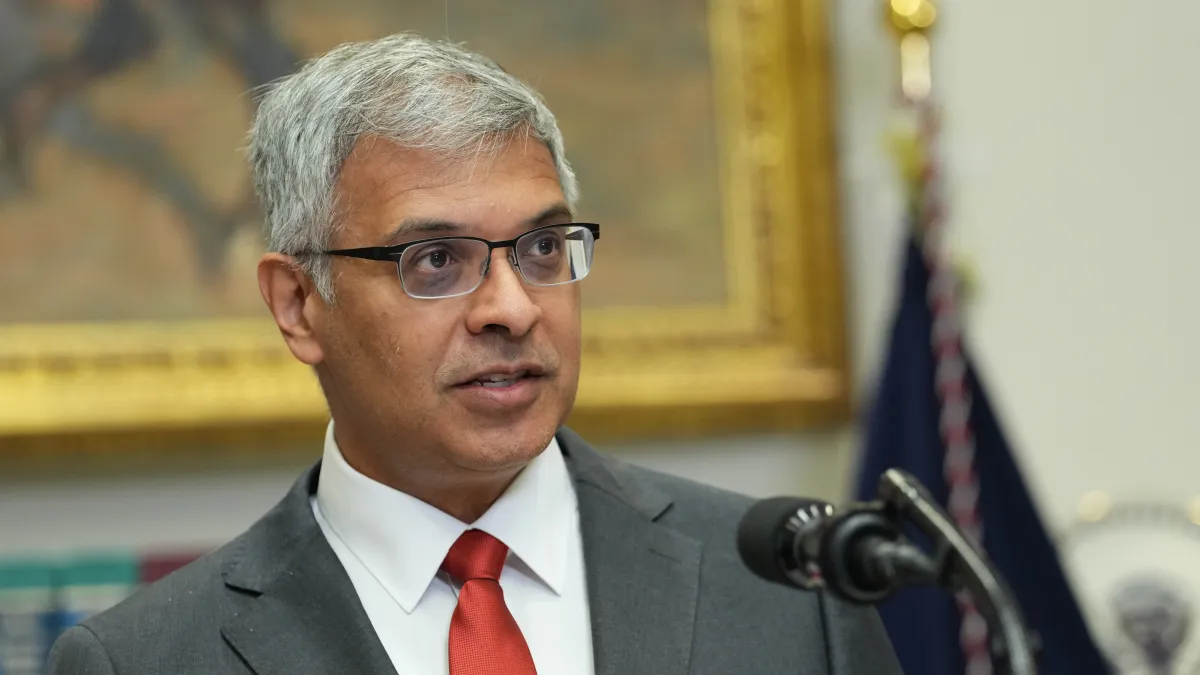
Testifying before an Appropriations subcommittee hearing Tuesday, National Institutes of Health Director Dr. Jay Bhattacharya defended the Trump administration’s proposed $18 billion reduction in the agency’s budget for fiscal year 2026.
The roughly 40% reduction in funding relative to 2025 levels could translate to the loss of about 1,800 grants for medical research next year, according to some experts. And even before a lower budget is put in place, the NIH has cancelled thousands of existing research grants and slowed the approval of new grants since President Trump took office.
Wisconsin Democratic Sen. Tammy Baldwin asked who made the decision to cancel existing grants. “There [have been] changes in priorities for the NIH, to move away from politicized science,” Bhattacharya said. “I’ve made those decisions. Decisions regarding, for instance, Harvard and some other institutions, that’s joint with the administration.”
Sen. Dick Durbin, Democrat from Illinois, told Bhattacharya that Northwestern University has seen its NIH funding frozen for the past 11 weeks, including $9 million for clinical trials in colon, brain, breast and childhood cancers.
“For God’s sake, we lead the world in medical research. Why would we give up on it?” Durbin asked, noting that the White House budget request sought a 38% cut in funding for cancer research. “How are you able to reconcile these budget decisions with the reality of research and what it means to alleviate suffering and, more importantly, to give people hope?”
Republicans on the committee also raised questions about the proposed budget, with Maine Sen. Susan Collins calling the cuts “disturbing.”
“It would undo years of congressional investment in NIH, and it would delay or stop effective treatments and cures from being developed for diseases like Alzheimer’s, cancer, Type I diabetes, I could go on,” Collins said. “We also risk falling behind China and other countries that are increasing their investment in biomedical research.”